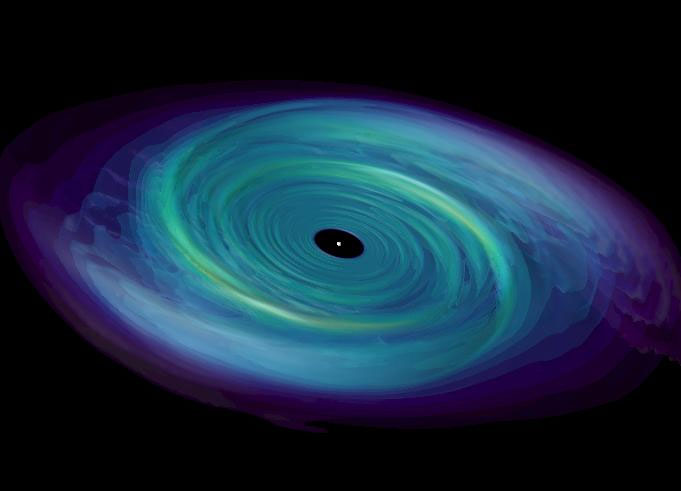NASA launches a campaign to hunt down black cosmic holes
The US Aerospace Agency (NASA) announced on May 30 that it will use an ultra-modern satellite telescope in the next month to search for black holes in the universe.
>>>The image reveals the coldest, most isolated place in the universe
The project aims to study the 'hottest, most material and energetic phenomenon in the universe, such as black holes and explosions of massive stars' , according to Fiona Harrison of the Telescope Program. Atomic spectroscopy (NuSTAR).
The telescope is expected to be put on Earth orbit on June 13 from Kwajalein Atoll on the Marshall Islands.

Cosmic black hole
'NuSTAR will open a whole new door into the universe ,' said Harrison, a professor at the California Institute of Technology and Science in Pasadena.
The telescope is expected to be launched from a rocket below an aircraft. Both Pegasus XL and Stargazer L-1011 are produced by Orbital Sciences.
The final review procedures for the flight are ready to take place on June 1, and if all goes well, the Stargazer will fly from Vandenberg air base in central California to Kwajalein on June 5 and 6. to launch missiles about a week later.
The new telescope will work in conjunction with other telescopes operating in the universe, including NASA's Chandra X-ray observatory, tracking X-rays with lower energy intensity.
NuSTAR, 10 meters long, is considered to have greater performance than other glass because it has the ability to concentrate high-energy X-rays with 133 mirror pieces at each of the two optical units.
'Just 20 years ago, scientists still thought that black holes were very rare ,' Harrison told reporters. 'Today we know that every large galaxy, including our galaxy, has. a giant black hole in the heart '.
- Decoding mistakenly thought that the black hole of the universe is
- Can destroy a cosmic black hole?
- Discover the mystery of the most exotic black holes in the universe
- The cosmic ghost was born after a black hole exploded
- 740 million light years away is a completely different universe of black holes
- The supermassive black hole is 20 billion times more massive than the Sun
- Black hole woke up after 30 years,
- Millions of black holes are hiding in our galaxy
- A unique array of 'cosmic black holes'
- The culprit can cause cosmic rays to bombard the Earth
- Why doesn't the black hole swallow the whole universe? This may be the answer!
- Detecting 9 super black holes facing the same direction
 Van Allen's belt and evidence that the Apollo 11 mission to the Moon was myth
Van Allen's belt and evidence that the Apollo 11 mission to the Moon was myth The levels of civilization in the universe (Kardashev scale)
The levels of civilization in the universe (Kardashev scale) Today Mars, the sun and the Earth are aligned
Today Mars, the sun and the Earth are aligned The Amazon owner announced a secret plan to build a space base for thousands of people
The Amazon owner announced a secret plan to build a space base for thousands of people